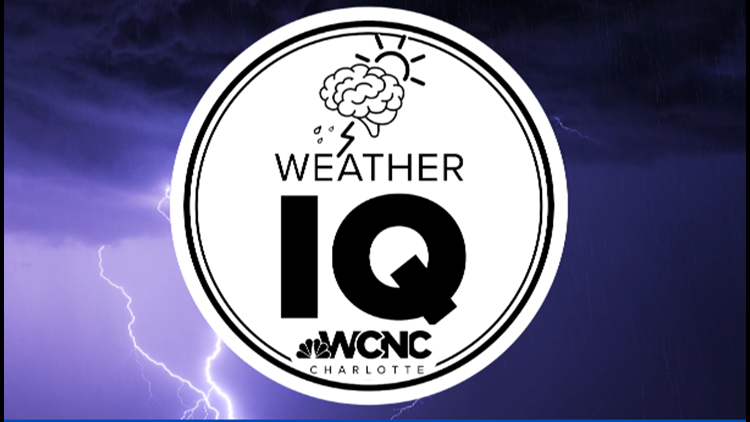CHARLOTTE, N.C. — The study of weather and the Earth’s atmosphere is called Meteorology. But where does the meteor-part stem from?
The term Meteorology has quite the history deriving from the Greek word meteoron which means any phenomenon that is high in the sky.
Around 340 BC, the famous philosopher Aristotle wrote a treatise called Meteorologica. This is the first record of the study of what’s in the sky and was accepted as an accurate weather theory for nearly 2000 years. But by the 17th century, scientific Meteorology was born.
Aristotle’s Meteorologica included shooting stars or “meteors” in his writings which is now separated into astronomy.
NOTE: A meteor (according to astronomy) is a small body of matter that is actively burning in our atmosphere (shooting star) . A meteorite is what is left of a meteor when it hits earth and a meteoroid is a small 'body' moving outside of our solar system that hasn't become a meteor yet.
It also had notes of geology and oceanography that were melded in into the work.
But meteorology technically does study meteors.
The former definition according to Merriam-Webster Dictionary is
Definition of meteor
1: an atmospheric phenomenon (such as lightning or a snowfall)
So snow, rain, clouds, fog, are all classified as hydrometeors because they are made from water.
- Lightning is called an electrometeor
- Dust and smoke in the atmosphere is a lithometeor
- A rainbow is a photometeor
So even though we don’t study the one meteor we most commonly know streaking across our skies, the name Meteorology theoretically fits.
With WCNC Charlotte I’m Meteorologist Chris Mulcahy and we are all now a little bit more weather wise.



